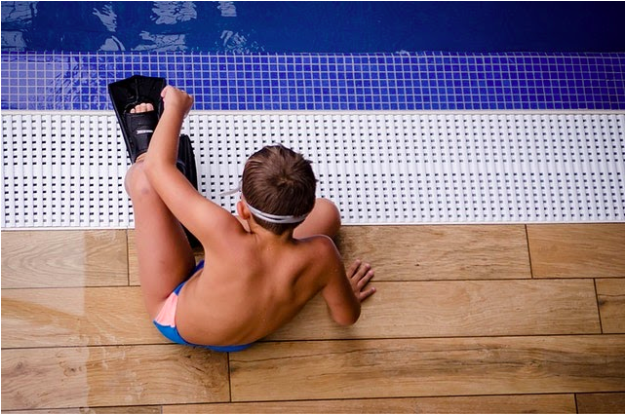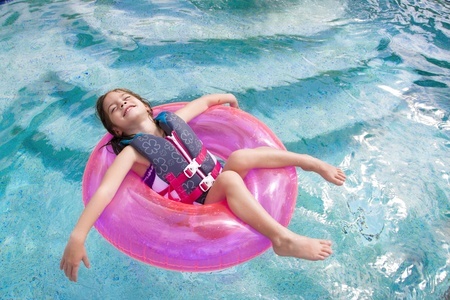
Uncovering swimming pools and spas is something that everyone in Mississippi is looking forward to. The days are getting longer, the temperatures are warming up and the smell of spring is in the air. Plus, with the kids home from school for the remainder of the year due to coronavirus, it’s no surprise why parents are especially eager to open their pools sooner than later.
Before you move in that direction, however, now is a great time to assess how safe your swimming pool really is. If you plan on giving your kids more freedom this year, you have to know that your backyard pool is as safe as it can be. Below are a few ways to ensure your swimming pool is secure.
Block Access to the Pool
Your pool should be secure with a swimming pool cover and/or fence. This protects your children as well as other kids in the neighborhood. Pool covers come in many types and styles, but for the best protection, we recommend one that is heavy and straps into place. This is the best way to prevent kids from drowning if they accidentally fall into the pool.
A fence may be a requirement by your community, so you probably already have one installed. Make sure that your fence is in good condition and features a self-closing or self-latching gate so that it can’t be left open accidentally.
Install Alarms
If you’re worried that your child will try to access the pool even with a fence, consider installing a pool alarm system. If someone jumps or falls in, the alarm will sound. The two main types of alarms to choose from are wave alarms and light alarms.
Wave alarms sound off when they detect waves in the pool. Light alarms shoot light beams around the perimeter of the pool and go off when the beam is broken. You can also install an alarm on the fence to alert you if someone opens it.
Keep the Area around the Pool Safe
Another thing to do is maintain a safe place around the perimeter of the swimming pool. Here are some of the best suggestions:
- Repair cracks in the concrete or wood, as they can lead to trips and falls.
- Have a place to store pool toys so they are not left around the pool’s perimeter.
- Use only plastic cups and plates when dining around the pool – no glass.
- Protect all outlets and electrical equipment.
- Keep a phone nearby in case of emergencies.
- Post your swimming pool rules where everyone can see them.
- Trim trees hanging over the pool.
Maintain Pool Equipment
Pool equipment can be just as dangerous as the water itself. Make sure that all pool equipment is properly maintained and used as directed. For example, never use the pool when the vacuum is operating and be mindful of spa pumps and drains that can be strong enough to pull a young child under water. Also, keep cleaning chemicals stored away.
By giving your backyard pool some attention, you can ensure that it’s as safe as possible for your family and others who come to visit. To purchase a pool cover or discuss your other pool needs, contact Paradise Pools today.

 CALL US TODAY!
CALL US TODAY!
 In recognition of swimming and other water-related activities, the month of May is the perfect time to provide public education on safe water practices. As we approach the summer months where people will be spending more time on the water, it’s important to know the potential risks and what you can do to protect yourself and your family.
In recognition of swimming and other water-related activities, the month of May is the perfect time to provide public education on safe water practices. As we approach the summer months where people will be spending more time on the water, it’s important to know the potential risks and what you can do to protect yourself and your family.


